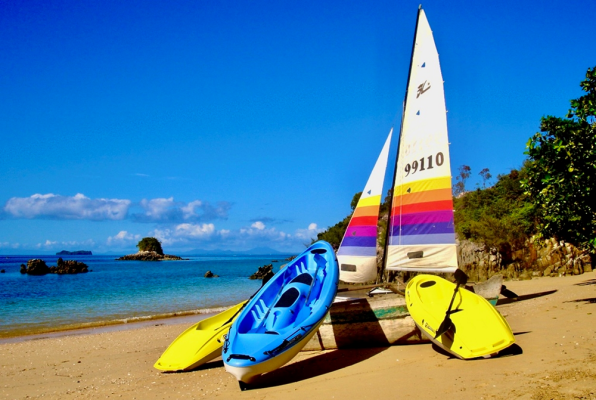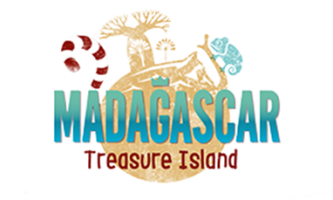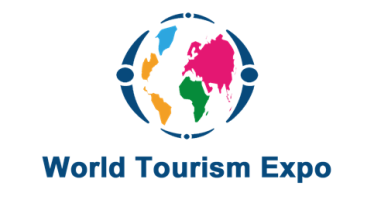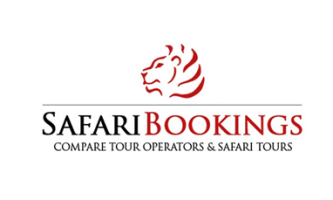
Madagascar, a fascinating island in the heart of the Indian Ocean, is a true treasure of biodiversity and culture. With its varied landscapes, ranging from idyllic beaches to majestic mountains, this destination attracts many travelers seeking adventure and discovery. Whether you are passionate about the island's unique wildlife, interested in its local cultures, or eager to experience an immersive nature adventure, Madagascar offers a multitude of opportunities to explore.

The Malagasy authorities have announced the lifting of all health restrictions for travelers to Madagascar. This includes the removal of mandatory tests upon arrival and the elimination of quarantine for both vaccinated and unvaccinated visitors.
Travelers should still verify specific health requirements before departure, as adjustments may be made depending on the evolving situation. We recommend following local authority information and preparing your trip accordingly.
For your treks and hikes, we recommend bringing appropriate clothing and equipment: hiking shoes, mosquito repellent, insect bite treatment, survival blanket… For camping, bring sleeping bags, a flashlight, an emergency kit, a water bottle, a water purification tablet, and a Swiss army knife.
When visiting Madagascar’s national parks, you will be required to respect the visitor code of conduct, or face penalties. For example: do not leave waste behind, stay on designated paths, camp only in authorized areas, do not take anything from the forest, and do not feed the animals.
Here are some tips to avoid awkwardness with a Malagasy person: Never disrespect the Fady (taboos). The use of the informal "tu" does not exist in Malagasy grammar; prefer the formal "vous" until you establish close ties with someone. Do not photograph anyone without their consent.
Avoid speaking loudly or displaying anger. Throwing a few words of Malagasy into a conversation is always appreciated. Additionally, bargaining is a very common practice in Madagascar, whether for Pousse Pousse or for taxis without meters. As for tips, they are given according to the client’s appreciation.
Very few sites, hotels, or transports have facilities for children or for welcoming persons with reduced mobility. Inform your agency in advance so that all arrangements are made upon your arrival.
It is therefore essential to check the available amenities at the places where you will stay or plan to visit to ensure a pleasant and accessible experience for everyone. Some destinations may be more suitable than others for these needs.
Malagasy people are generally modest, and it is better to cover up in spiritual places. In winter, on the Central Highlands, bring some warm clothing. Temperatures can vary greatly between coastal areas and inland regions.
In addition to clothing suitable for climate variations, make sure to bring light clothing for hot days and mosquito repellent for hikes in forested areas. This will ensure a comfortable and pleasant stay.
International cuisine is available in most hotels and restaurants. If you wish to taste local cuisine, ROMAZAVA and RAVITOTO are the specialties. However, some dishes may be too strong for those not accustomed to them. It is not recommended to drink tap water.
For a more authentic culinary experience, explore local markets where you can discover homemade typical dishes. Also, prioritize bottled water to avoid any risks associated with tap water, especially if you are not accustomed to local conditions.
The main language of Madagascar is MALAGASY, but English and French are also recognized as official languages, with French being more commonly used. You will be able to communicate easily in urban and tourist areas.
However, in more rural regions, it can be useful to learn a few words of Malagasy to facilitate communication and enhance your experience. The locals will generally appreciate it if a visitor makes an effort to speak their language.
The currency of Madagascar is the ARIARY. It is non-convertible, and it is recommended to exchange money locally. Exchange offices are available in towns, airports, and some hotels. Avoid street money changers.
Banks are mostly equipped with ATMs that accept international VISA and Mastercard cards. However, in rural areas, it can be difficult to find ATMs, so it is advisable to withdraw money in town before heading out on excursions.
The Convention on International Trade in Endangered Species (CITES) prohibits taking items like lemurs, dugongs, tortoises, the Bemaraha chameleon, Antongil red frogs, or certain plant species (euphorbiaceae, didieraceae, apocynaceae) from Madagascar.
It is also forbidden to take items classified as National Heritage, such as aloalo, Zafimaniry window shutters, and ancient documents. By respecting these rules, you contribute to the preservation of Madagascar’s unique flora and fauna.
At the end of your stay in Madagascar, you may freely take (with receipts and invoices) up to 2 kg of vanilla, 250g of stamped jewelry, and 4 items made from crocodile skin purchased from authorized sellers. In addition to the airport, Duty-Free shops are available in town with proof of a return ticket and ID.
Make sure to keep your receipts and invoices to avoid any misunderstandings when exporting these products. Items purchased in Duty-Free shops are exempt from taxes, offering a benefit to travelers at the end of their stay.
If you wish to take professional photos or videos in parks and reserves, you must obtain permission from Madagascar National Parks. As elsewhere, always ask for permission before photographing anyone.
In general, photography in public places is allowed, but it is always better to ask permission, especially when taking photos of local people or religious sites. Always respect the culture and laws in place to avoid any uncomfortable situations.
Government offices are open from Monday to Friday, with post offices and telecoms having a Saturday morning shift. Public holidays include Christian calendar dates, as well as May 1st, March 29th (commemoration of the 1947 events), and June 26th (National Day).
It is important to note that hours may vary depending on the region or sector. It is advisable to verify the opening hours of services or businesses you wish to visit, especially in rural areas.
The electricity in Madagascar is generally 220V. Most hotels have their own generators. It’s advisable to bring a battery-powered device for extreme cases. For calls, the country code is 261, and high-speed internet is generally available in hotels.
In remote areas, access to electricity and the internet may be limited. It’s advisable to always check the availability of these services at your accommodation before going on excursions in more isolated areas.
CHOOSE THE TRIP YOU WANT TO MAKE.
You will be invited to open your personal account. Fill out the form carefully. Confirm your address, then start choosing your tour on One Mada.
You can now chat with your LOCAL EXPERT. Tell them the trip you've chosen and any special requests or modifications.
Once the booking is made, you will receive a BOOKING CONFIRMATION containing the General Terms and Conditions of Sale. Please carefully check the content, dates, and rates agreed upon with your local expert. This constitutes your binding travel confirmation.
With the confirmation, you will receive the PAYMENT INFORMATION. You can make a transfer using all possible payment methods, such as credit card, PAYPAL, STRIPE, Twint, or Invoice. As a deposit, please pay 30% of the total price within 10 days of receiving the confirmation. In case of payment by credit card, the amount due will be automatically debited on the corresponding date.
You will receive the DETAILED TRAVEL PROGRAM directly from your expert in your personal space. The vouchers and domestic flight tickets will be given to you upon arrival, or your guide will take care of it.
FINAL PAYMENT
Please transfer the remaining balance no later than 21 days before the start of your trip.
REMINDER BEFORE THE TRIP
1 to 3 days before the trip starts, an employee from ONE MADA or your Local Expert will contact you via phone or WhatsApp to wish you a SAFE TRIP or answer your last questions about the trip.
AFTER YOUR TRIP
Once you're back home. After a few days, we'd be happy to receive your completed travel form along with some of your best photos, which we will gladly publish on our platform if you agree.
A human-sized agency to provide you with advice from real field experts. A team with perfect knowledge of the destination, attentive to your desires.
Together with our local experts, you design your dream trip to Madagascar. Specialists, passionate, dynamic, and experts with at least 15 years of experience.
The price you pay is the one you agreed on directly with the local agency. Together, you determine the services and the corresponding prices. This way, you avoid any potential intermediary fees.
Payment via Credit Card, PAYPAL, STRIPE, Twint, or bank transfer to our bank in Europe. You avoid fees related to international transfers and the risks of sending money to a non-Eurozone country.




